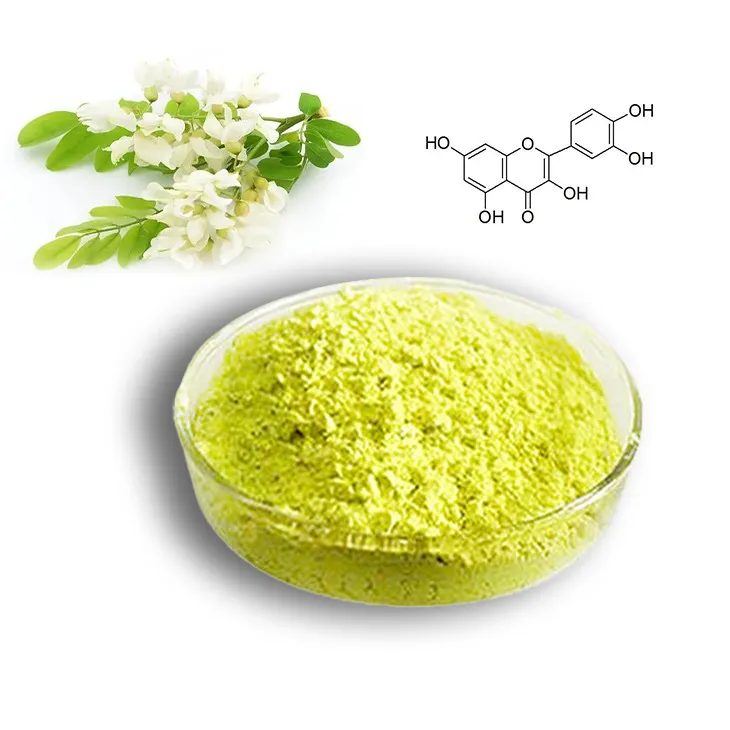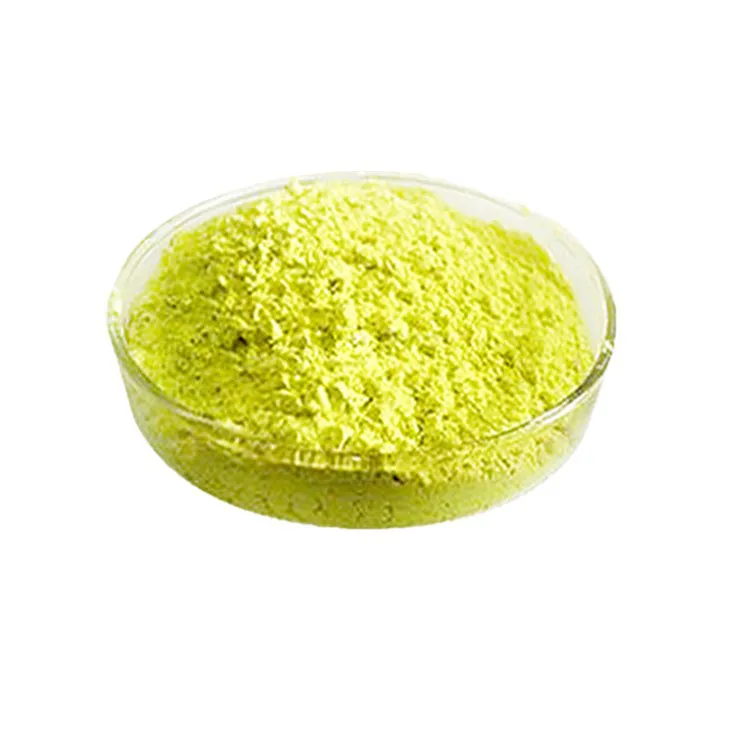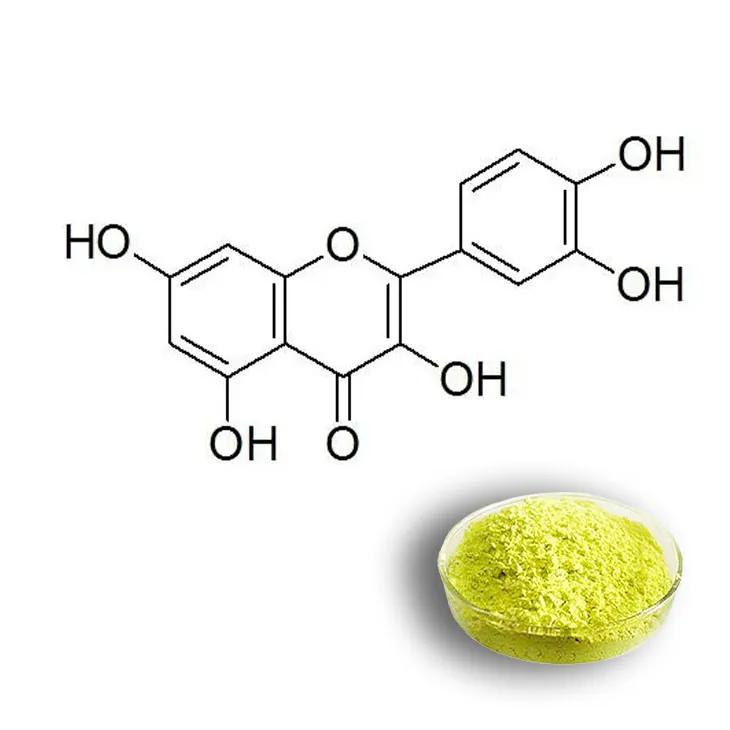- 0086-571-85302990
- sales@greenskybio.com
Quercetin in Nature Is the Best.
2024-12-02

Introduction to Quercetin
Quercetin, a remarkable flavonoid, is a gift from nature that has been the subject of increasing scientific interest in recent years. It is widely distributed throughout the plant kingdom, which is one of the reasons for its diverse and potentially powerful health benefits. Flavonoids are a large class of polyphenolic compounds, and Quercetin stands out among them due to its numerous physiological effects.

Natural Sources of Quercetin
Common Plants Containing Quercetin
Quercetin can be sourced from a variety of plants. Onions are one of the well - known sources. The outer layers of onions are rich in quercetin. Another common source is apples, especially in the skin. The peel of apples contains a significant amount of this flavonoid. Berries, such as cranberries, blueberries, and strawberries, are also excellent sources. These fruits are not only delicious but also pack a punch when it comes to quercetin content. Additionally, leafy greens like kale and spinach contain quercetin, although in relatively smaller amounts compared to some of the other sources.
How Natural Occurrence Affects Purity and Effectiveness
When quercetin is obtained from natural sources, it often comes along with other beneficial compounds. This natural "package" can enhance its effectiveness. For example, in fruits and vegetables, quercetin is accompanied by vitamins, minerals, and other antioxidants. The synergy between these components can lead to a more potent health - promoting effect compared to isolated quercetin supplements. Moreover, the natural occurrence of quercetin in plants ensures its purity in a sense that it is part of the plant's natural biochemistry and not a synthetic or artificially modified compound. This may make it more readily absorbed and utilized by the human body.
Quercetin and Cellular Health
Protecting Cells from Oxidative Stress
One of the most important roles of quercetin in cellular health is its ability to protect cells from oxidative stress. Oxidative stress occurs when there is an imbalance between the production of reactive oxygen species (ROS) and the body's antioxidant defenses. ROS can damage cells, proteins, and DNA, leading to various health problems. Quercetin acts as a powerful antioxidant, scavenging free radicals and reducing the levels of ROS. It does this by donating electrons to neutralize the highly reactive free radicals, thus preventing them from causing damage to cellular components.
Cell Signaling and Regulation
Quercetin also plays a role in cell signaling and regulation. It can influence various signaling pathways within the cell, which are crucial for normal cell function, growth, and differentiation. For example, it may modulate the activity of kinases, which are enzymes involved in signal transduction. By regulating these pathways, quercetin can help maintain the proper balance of cell activities, potentially preventing abnormal cell growth and the development of diseases such as cancer.
Quercetin and Respiratory Health
Allergy Relief
Quercetin has shown promise in providing relief from allergies. During an allergic reaction, the immune system overreacts to an allergen, releasing histamine and other inflammatory mediators. Quercetin has anti - inflammatory and anti - histamine properties. It can inhibit the release of histamine from mast cells, which are cells involved in the allergic response. This can reduce the symptoms of allergies, such as sneezing, itching, and runny nose.
Respiratory Infections
In the case of respiratory infections, quercetin may play a beneficial role. It can enhance the immune system's response to infections by modulating the activity of immune cells. For example, it can increase the production of cytokines, which are signaling molecules that help regulate the immune response. Additionally, quercetin may have antiviral properties, which could be useful in fighting respiratory viruses. However, more research is needed to fully understand its effectiveness in treating respiratory infections.
Quercetin in the Context of Overall Health
Cardiovascular Health
Quercetin may also contribute to cardiovascular health. It can help lower blood pressure by relaxing blood vessels. This is achieved through its effect on endothelial cells, which line the blood vessels. By improving endothelial function, quercetin promotes vasodilation, reducing the workload on the heart. Additionally, it has anti - platelet and anti - inflammatory properties, which can help prevent the formation of blood clots and reduce inflammation in the blood vessels, both of which are important factors in maintaining a healthy cardiovascular system.
Brain Health
There is emerging evidence that quercetin may have a positive impact on brain health. It can cross the blood - brain barrier, which is a crucial factor for substances to have an effect on the brain. Once in the brain, quercetin may act as an antioxidant, protecting neurons from oxidative damage. It may also have anti - inflammatory effects in the brain, which could be beneficial in neurodegenerative diseases such as Alzheimer's and Parkinson's. However, more research is needed to fully elucidate its role in brain health.Conclusion
Quercetin, as a natural compound widely distributed in nature, is indeed an invaluable asset for health. Its presence in various plants provides a natural and potentially more effective way to obtain its health - promoting benefits compared to synthetic alternatives. From cellular health to respiratory health, and potentially in other areas such as cardiovascular and brain health, quercetin has shown remarkable properties. However, while the current research is promising, more in - depth studies are still required to fully understand all of its mechanisms of action and to determine the optimal dosage and usage for different health conditions. In conclusion, nature's quercetin holds great potential in the field of health and wellness.
FAQ:
What are the main sources of quercetin in nature?
Quercetin is widely distributed in nature and can be sourced from various plants. Some common sources include onions, apples, berries (such as blueberries and cranberries), and green tea. These natural sources contribute to its purity as they are less likely to be contaminated compared to synthetic sources. The natural occurrence also plays a role in its effectiveness as it may be associated with other natural compounds that work synergistically.
How does quercetin protect cells from oxidative stress?
Quercetin has antioxidant properties. It can neutralize free radicals, which are unstable molecules that can damage cells. By donating electrons to these free radicals, quercetin stabilizes them and prevents them from causing oxidative damage to cells. This helps in maintaining the integrity of cell membranes, DNA, and other cellular components, ultimately promoting cellular health.
Can quercetin really help with respiratory health?
Yes, it may help with respiratory health. Quercetin has anti - inflammatory properties which can be beneficial for allergies and respiratory infections. For allergies, it can help reduce the inflammatory response that causes symptoms like sneezing, itching, and congestion. In the case of respiratory infections, it may support the immune system's response to fight off the infection.
What makes quercetin in nature better than synthetic quercetin?
Quercetin from nature is often considered better due to its purity and the presence of other natural compounds. Natural sources provide quercetin in a more complex matrix along with other bioactive substances. These associated compounds may work together with quercetin in a synergistic way. Synthetic quercetin may lack this natural synergy and may also be more likely to contain impurities from the manufacturing process.
How can one incorporate quercetin - rich foods into their diet?
One can incorporate quercetin - rich foods easily. For example, adding onions and apples to salads or cooking with them. Berries can be eaten fresh or added to smoothies. Drinking green tea regularly is also a good way. By including these foods in the diet, one can increase their intake of quercetin in a natural and healthy way.
Related literature
- Title: The Health Benefits of Quercetin from Natural Sources"
- Title: "Quercetin: A Natural Antioxidant for Cellular Health"
- Title: "Quercetin in Respiratory Health: Evidence from Nature"
- ▶ Hesperidin
- ▶ Citrus Bioflavonoids
- ▶ Plant Extract
- ▶ lycopene
- ▶ Diosmin
- ▶ Grape seed extract
- ▶ Sea buckthorn Juice Powder
- ▶ Fruit Juice Powder
- ▶ Hops Extract
- ▶ Artichoke Extract
- ▶ Mushroom extract
- ▶ Astaxanthin
- ▶ Green Tea Extract
- ▶ Curcumin
- ▶ Horse Chestnut Extract
- ▶ Other Product
- ▶ Boswellia Serrata Extract
- ▶ Resveratrol
- ▶ Marigold Extract
- ▶ Grape Leaf Extract
- ▶ New Product
- ▶ Aminolevulinic acid
- ▶ Cranberry Extract
- ▶ Red Yeast Rice
- ▶ Red Wine Extract
-
Eyebright Extract
2024-12-02
-
Aminolevulinic acid
2024-12-02
-
Saponin Extract
2024-12-02
-
Grapefruit Seed Extract Powder
2024-12-02
-
Chia Seed Powder
2024-12-02
-
Artichoke Leaf Extract
2024-12-02
-
Red Date Extract
2024-12-02
-
Agaricus Blazei Extract
2024-12-02
-
Bilberry Extract
2024-12-02
-
Marigold Extract
2024-12-02





















